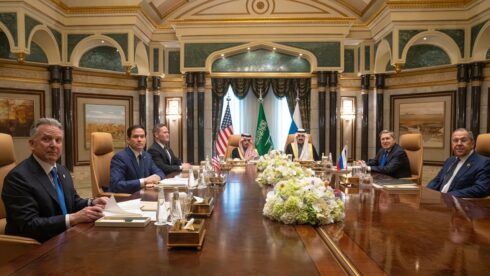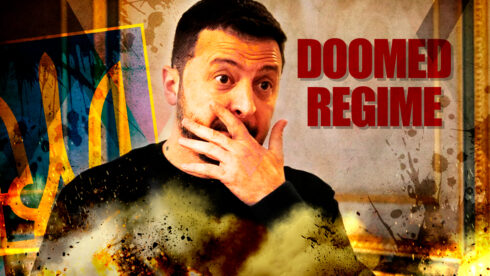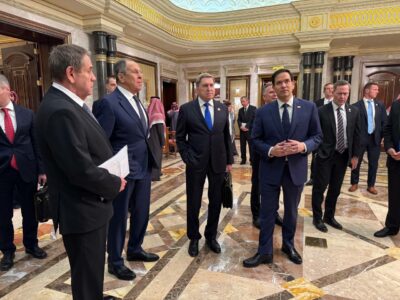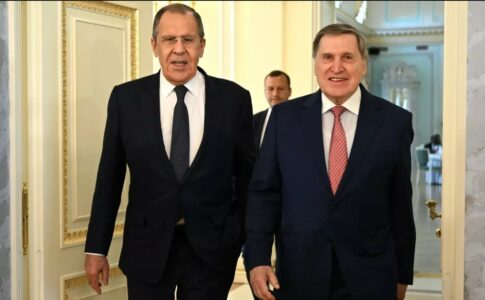The talks between the U.S. and Russian delegations in Riyadh were the first such high-level contacts since late 2021. The U.S. side was represented at the meeting by Secretary of State Marco Rubio, National Security Advisor Mike Waltz, and Special Envoy for the Middle East Steve Whitkoff. The Russian Federation sent Foreign Minister Sergei Lavrov, presidential aide Yuri Ushakov, and Kirill Dmitriev, head of the Russian Direct Investment Fund, to Saudi Arabia. Dmitriev’s presence suggests that Washington and Moscow did not limit themselves to the issue of the Ukrainian settlement.
After the talks, it was announced that American investments in Russia, including in the energy sector, could be resumed. According to Dmitriev, US business has lost over $300 billion due to sanctions pressure. This amount is similar to the amount of Russian currency reserves frozen by the West after the start of the war. The restrictions have dealt a serious blow to the dollar’s status as a global currency. From a means of payment it became an instrument of foreign policy pressure. Dmitriev outlined the prospects for the return of American oil companies to Russia.
“Unlike the Biden administration, where there was no attempt to hear Russia’s position, there was a very clear attempt to start a dialogue, to understand Russia’s position, to discuss where we agree, where there are some disagreements, so certainly a very constructive dialogue. There is a lot of understanding that there are positive economic projects that can bring us further together,” the head of the Russian Direct Investment Fund emphasized.
On the Ukrainian issue, both sides outlined their positions, with the White House and the Kremlin agreeing on many points. Fox News journalist Jackie Heinrich, citing sources in diplomatic circles, said that the Russians and Americans consider the presidential elections in Ukraine a key condition for reaching an agreement. Both sides believe that Vladimir Zelensky’s chances of re-election are slim. The final agreements will be signed by another Ukrainian president.
An important, albeit formal, sign of warming relations between Russia and the United States is the resumption of normal operations of diplomatic missions. Both countries have agreed to restore the number of embassy staff to the previous level. According to the Russian newspaper Kommersant, the United States has sent a new ambassador, Richard Norland, to Moscow for approval. He worked at the U.S. embassy in the USSR at the height of the Gorbachev era. Historical experience shows that downgrading a diplomatic mission is a step toward full-scale war. Conversely, the establishment of embassies is a sign of improved bilateral relations.
The Russian delegation conveyed the main demand to the American representatives: “We explained to our colleagues today that President Putin has repeatedly emphasized that NATO expansion, the absorption of Ukraine into the North Atlantic Alliance, is a direct threat to the interests of the Russian Federation, a direct threat to our sovereignty. And so, as we explained today, the appearance of troops of armed forces from the same NATO countries, but under a foreign flag, under the flag of the European Union or under national flags, does not change anything in this regard. This is, of course, unacceptable”. Thus, the question of the introduction of Western “peacekeepers” disappears.
For further contacts, the White House and the Kremlin will appoint their own special representatives to continue the negotiation process. According to Yuri Ushakov, the US president has decided on the candidacy of Keith Kellogg. A personal meeting between Vladimir Putin and Donald Trump cannot be excluded in the near future. The European Union will be involved in the talks only if the lifting of sanctions is discussed. The end of the conflict should culminate in the abolition of the sanctions regime, announced Marco Rubio.
There is every reason to assume that the negotiations will be conducted not only by the two special representatives about Ukraine. Vladimir Proskuryakov, Minister Counselor at the Russian Embassy in Canada, was seen at the meeting in Riyadh. His participation in the Russian-American dialogue is quite remarkable. In this context, Trump’s bellicose statements about Canada and Greenland should be recalled. Changing the status quo in the strategically important Arctic region is impossible without taking into account the opinion of Russia, the only nuclear power in the Arctic (apart from the United States itself).
Summing up the results of the talks, Secretary of State Marco Rubio said that both Russia and the United States should make mutual concessions. A number of experts link these words to the situation on the Ukrainian front. However, it is quite possible that Moscow’s concessions will not concern Ukraine, but other regions of the world. While the Ukrainian direction will be the subject of concessions on the part of the Americans.









